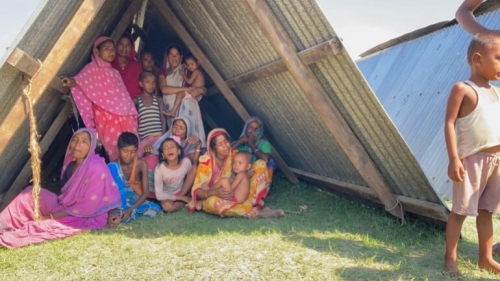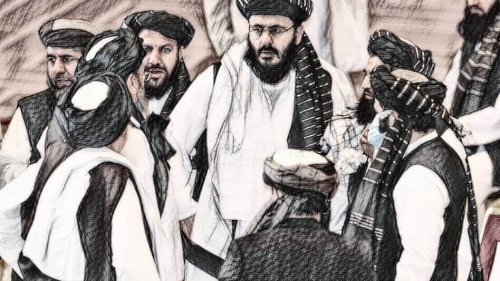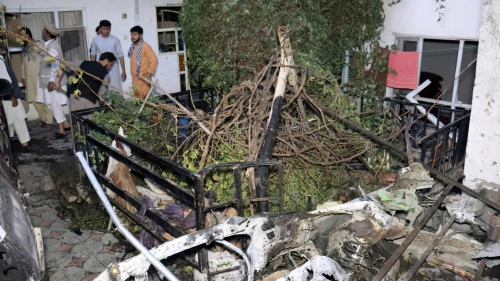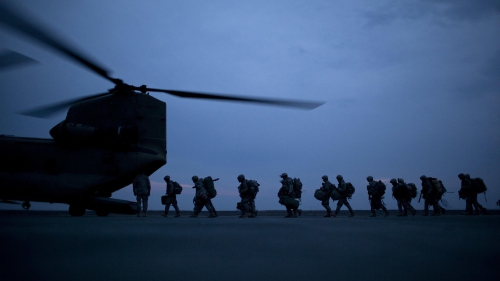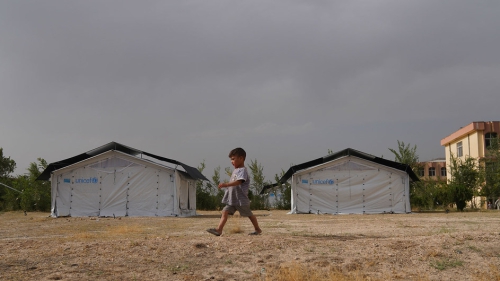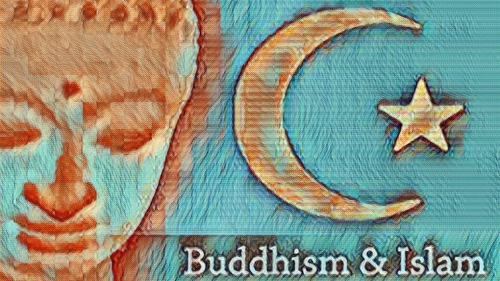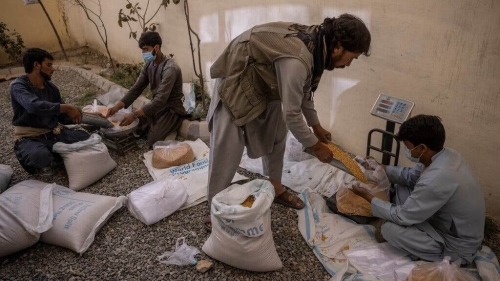What Would Budha Say to the Taliban?



The Taliban's destruction of the statues of Buddha at Bamiyan, Afgahnistan, have provoked near universal condemnation. One voice, however, has not been heard--that of Buddha himself.
What would Buddha say having witnessed 13 centuries of Muslim rule in Afghanistan under whom centuries of cultural heritage survived? Yet in just 21 years, since the Russian invasion of 1979, "thousands of Hellenistic, Iranian and Indian artifacts from Afghanistan's many-layered past have been smuggled out to the voracious and amoral Western art market."--Robert Huges, "Buddha Bashing," TIME, March 19, 2001.
What would Buddha say having witnessed a decade of Soviet occupation, the expulsion, by the courageous Afghans, of the mighty Soviet superpower--which led to its demise, and the fall of the Berlin Wall at the cost of 1.5 million Afghans killed, another million maimed, six million who migrated because of Russian brutalities (out of a total population of 18 million), and many thousands who continue to be maimed or killed by the land mines left behind by the Soviets?
What would Buddha say to a U.S. that has not only turned its back on the Afghans following these sacrifices, but continues to fuel a civil war against the Taliban which has brought a large measure of security to the 90 percent of Afghanistan which it controls, but sees peace and progress thwarted by the U.S., China, and Russia?
What would Buddha say to the U.S. which in the mid-1990s embargoed arms to the Bosnian Muslims, and a world that stood by and watched the genocide of the Bosnians, and the destruction of over 8000 mosques and priceless treasures from Bonia's National Museum, by Christian Orthodox Serbs and Catholic Croats?
What would Buddha say to NATO, which on its 50th anniversary, determined to protect its credibility, under the guise of saving the Kosovar Muslims, bombed military and civilian targets in Yugoslavia?
What would Buddha say to the U.S. which demonizes the Taliban because it seeks control of Caspian oil, enemies to justify defense spending--the U.S. share of the world's military spending at about 35 percent is now substantially higher than during the Cold War, and nearly three times that of all its potential adversaries combined--and to deter others from building an oil pipeline through Afghanistan?
What would Buddha say to the Chinese, Russians and Indians who fear the Taliban's support for oppressed Muslims in the Chinese province of Xinjiang, the former Soviet republic of Chechnya, and in the disputed state of Kashmir?
What would Buddha say to the world's powers for their determination to protect the statues at Bamiyan, while they do little to prevent the destruction of Palestinian homes, and the killing and wounding of thousands of Palestinians, armed only with stones, and a few rifles and automatic weapons against the most powerful state, and nuclear power, in the Middle East?
What would Buddha say to a "world [which] seems to care more about the destruction of two stone statues, which--let's be honest--hardly anyone had ever heard of until ten days ago, than about 100,000 refugees who have been starving and freezing to death near Herat a few hundred miles away from them?"--"The Afghan iconoclasts," The Economist, March 10, 2001.
Born in 563 B.C. in India, Siddharta Gautama, the Buddha, was deeply moved by the suffering of his people, and at age 29 gave up his kingdom and a life of luxury to seek enlightenment. When asked, "Are you a saint? Are you an angel? Are you a god? What are you?" answered, "I am awake." His answer became his title, for this is what Buddha means.
Buddha would probably say to the Taliban, "I have ignored the suffering of the Afghan people. Forgive me."
__________________________________________________
Enver Masud is director of the Wisdom Fund. Copyright 2001 The Wisdom Fund (www.twf.org).
Related Suggestions
In accordance with Title 17 U.S.C. Section 107, and such (and all) material on this site is distributed without profit to those who have expressed a prior interest in receiving the included information for research and educational purposes.
It says:
"Buddha would probably say to the Taliban, "I have ignored the suffering of the Afghan people. Forgive me."
Should this rather be what the deity of the people of Afghan say should say?
The Buddha has openly said that he is a teacher, a shower of the path. However following it is upto the individual. Please don't put words in the Buddha's mouth.



